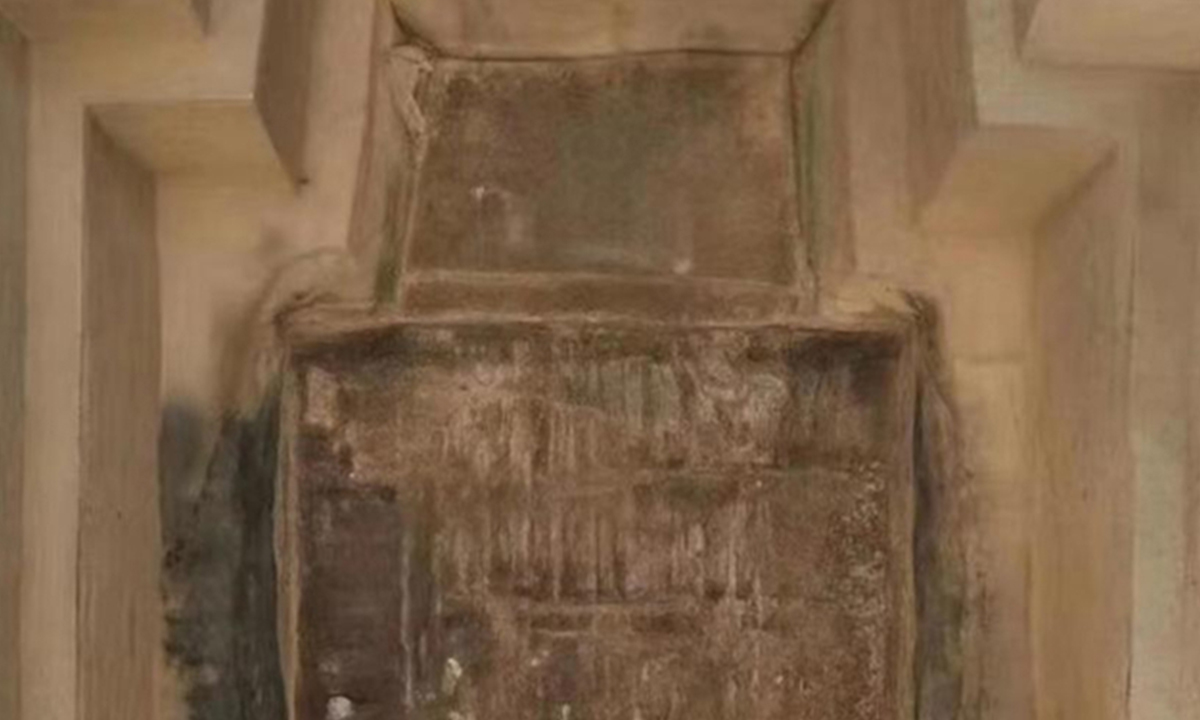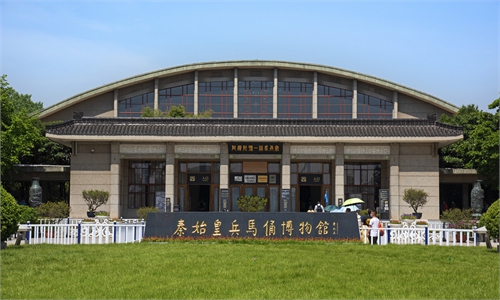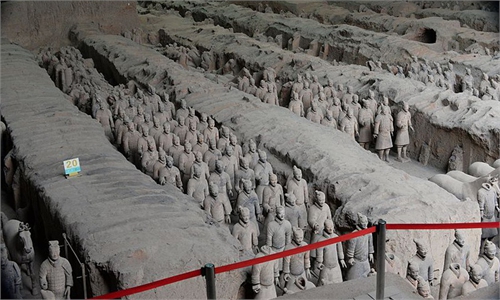ARTS / CULTURE & LEISURE
Ancient chariots found near mausoleum of China’s first emperor

Photo: CCTV
An array of ancient chariots, including a four-wheeled wooden chariot and a rare "six-sheep" carriage, were discovered near the mausoleum of China's first Emperor Qinshihuang in Qin Dynasty (221 BC-206 BC) in Xi'an, Northwest China's Shaanxi Province, providing fresh insights into early burial practices during that era.
The excavation team uncovered a four-wheeled wooden chariot from a pit, complete with an ornate rectangular umbrella, which remains well-preserved. This chariot, the earliest of its kind found in China, has offered invaluable primary source material for the study of early large burial vehicles, reported Shaanxi TV.
Through the excavation of surrounding pits, archaeologists have deduced that these finds are associated with chariots and horses used in burial ceremonies. These pits yielded various forms of chariots and differing numbers of horse remains, shedding new light on the use and function of single and double-axle chariots.
One of the most exceptional findings is the "six-sheep" carriage, a rarity in archaeological records. Inside the burial pit, six sheep skeletons were lined up in a row. Although the carriage's main body has deteriorated, experts were able to deduce its purpose due to the remnants of accessories used for pulling the carriage.
Historical records suggest that Emperor Sima Yan, founder of the Western Jin Dynasty (265-316) used a carriage carried by sheep to tour his palace complex in the evening, and then chose the palace in front of which the sheep stopped as his sleeping quarters. This marks the first appearance of a "sheep carriage" in recorded history.
Jiang Wenxiao, head of the archaeological project, noted that the discovery of a "sheep carriage" is exceptionally rare in Chinese archaeology.
The pit also yielded a large number of copper chariot and horse-related artifacts, accompanied by iron tools and copper weapons. These findings provide new insights into the era when iron tools began to appear.
Currently, laboratory analyses of the tomb's burial chamber are underway, with hopes of uncovering artifacts that will confirm the identity of the tomb's owner.
In 2020, the earilest-known single boygolden and silver camels in the country were unearthed from the tomb.
This remarkable discovery was announced at the 4th Congress of Chinese Archaeology, which kicked off on Monday in Xi'an. More than 800 archaeologists from both home and abroad attended the three-day event.
Global Times


